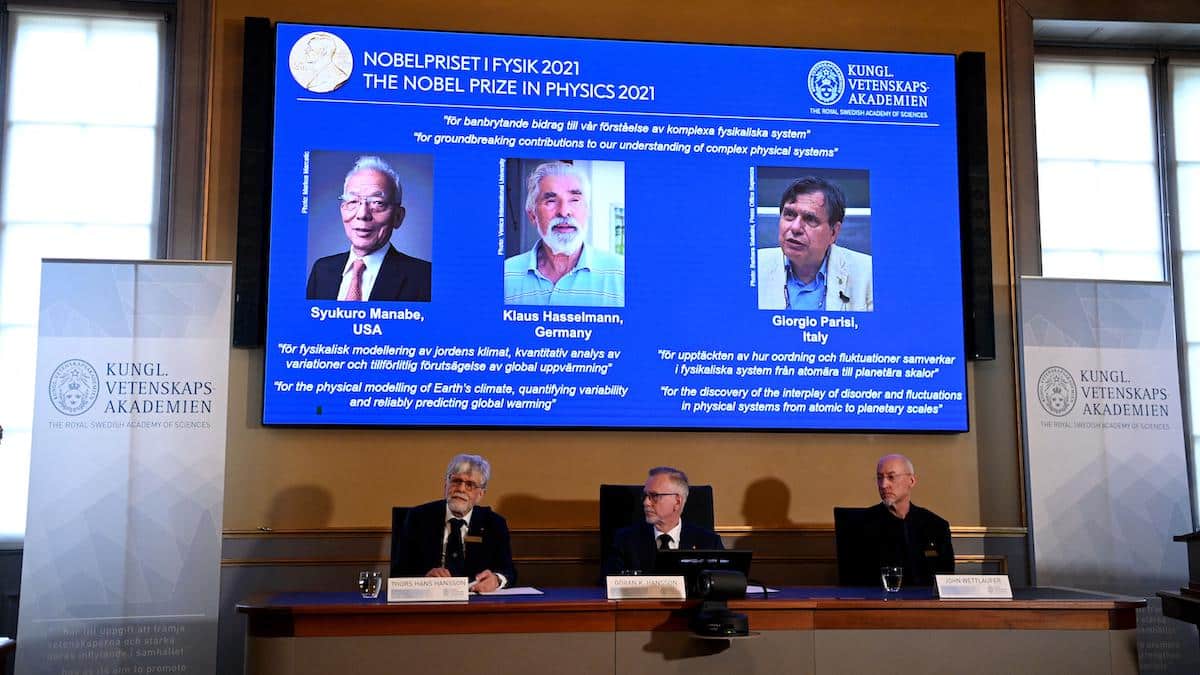
Nobel Prize Awarded to Scientists Who Helped Build Accurate Climate Prediction Models

Three scientists won the Nobel Prize in Physics for their research on complex systems like climate change.
The prize was split, with one half going to Giorgio Parisi of Italy for “the discovery of the interplay of disorder and fluctuations in physical systems from atomic to planetary scales.” The Nobel Committee awarded the other half to Syukuro Manabe, originally from Japan, and Klaus Hasselmann of Germany for their work in “the physical modeling of Earth’s climate, quantifying variability and reliably predicting global warming.”
Manabe’s work beginning in the 1960s laid the foundation for current climate modeling and Hasselmann helped explain why climate modeling can be reliable despite the apparent chaos of weather.
“Physics-based climate models made it possible to predict the amount and pace of global warming, including some of the consequences like rising seas, increased extreme rainfall events and stronger hurricanes, decades before they could be observed,” German climate scientist Stefan Rahmstorf told the AP. “We now witnessing how [Manabe and Hasselmann’s] early predictions are coming true one after the other.”
As reported by The Washington Post:
“I’m very happy that they put the attention on the climate problem, which is really important,” Hasselmann said in an interview for the Nobel’s website. “We’ve been warning about climate change for about 50 years or so; it’s just that people are not willing to accept the fact that they have to act now” to prevent the worst effects of climate change.
For a deeper dive:
AP, NPR, The Guardian, Reuters, The New York Times, The Washington Post
For more climate change and clean energy news, you can follow Climate Nexus on Twitter and Facebook, sign up for daily Hot News, and visit their news site, Nexus Media News.

 233k
233k  41k
41k  Subscribe
Subscribe 